Sex workers in Malawi deal with HIV, contraception and violence
- Published
Photojournalist Isabel Corthier met sex workers involved in a programme to help them access health services in southern Malawi.
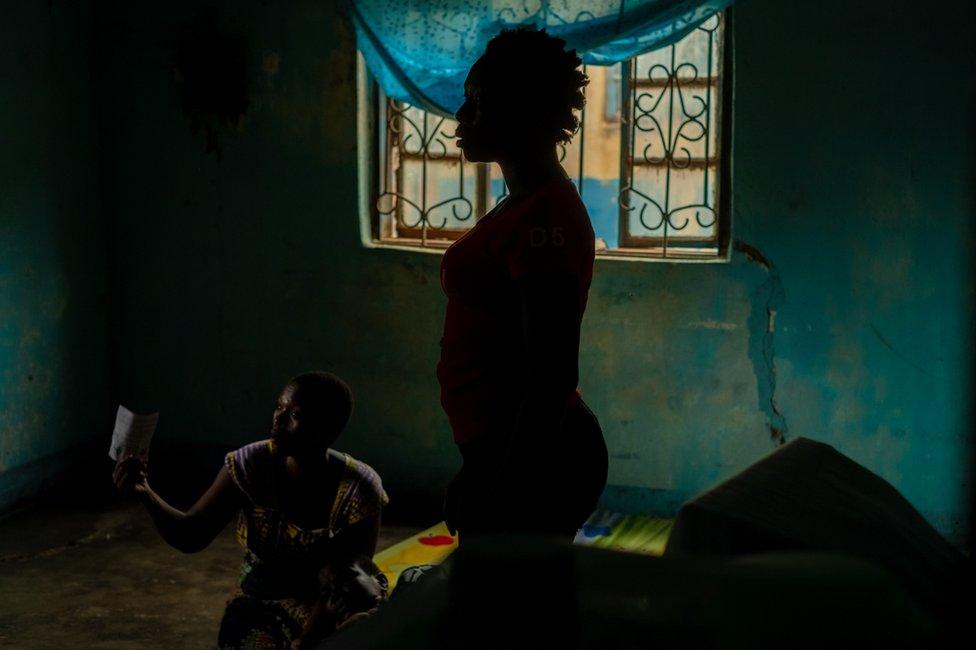
Malawi has one of the world's highest rates of HIV, with sex workers considerably more likely to contract the infection. Rates of unwanted pregnancy and STI infections are also high.
Since 2014, medical charity Medecins Sans Frontieres (MSF) has been working with Malawi's ministry of health and partners to increase healthcare for sex workers, including access to condoms and PEP (post-exposure prophylaxis), a drug which reduces the risk of HIV transmission.
Ms Corthier took portraits of some of the women, obscuring their identity, and MSF's Kate Ribet talked to them about their stories, and to some of the MSF workers.
The names of the sex workers have been changed to protect their anonymity.

Bernadette, sex worker, Dedza
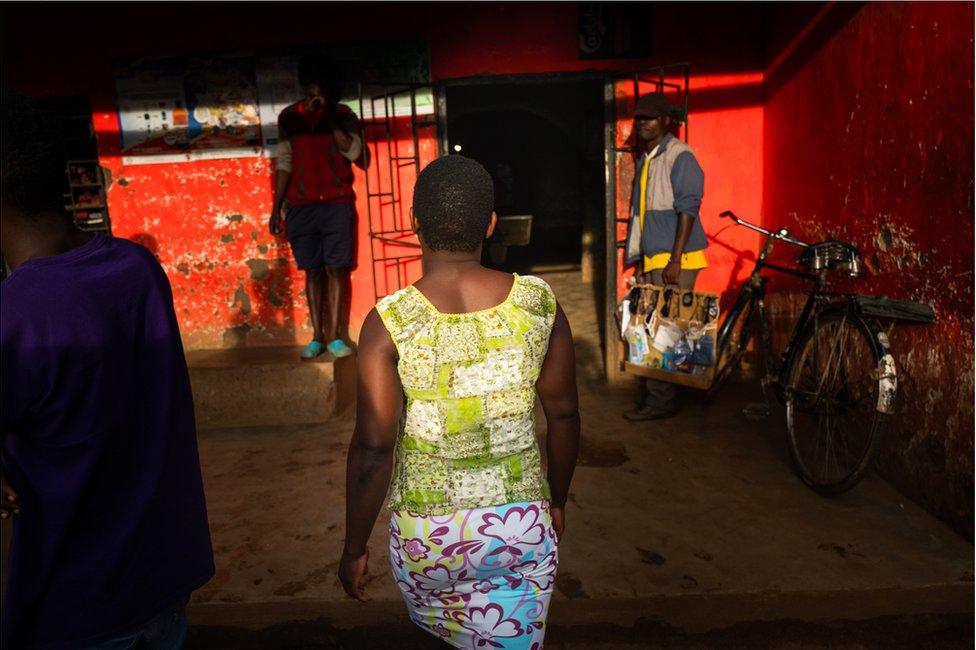
Bernadette was born into a family of 11. She lost both her parents when she was seven years old and was raised by her sister and later by her grandparents.
With little financial support from her family, she found herself going hungry at school and started having sex in exchange for food, pens and books. She soon fell pregnant and dropped out of school at 18.
Today she is a mother of six children. Her last partner was abusive and left her destitute, so she turned to selling sex in 2018, seeing it as the best option to survive.
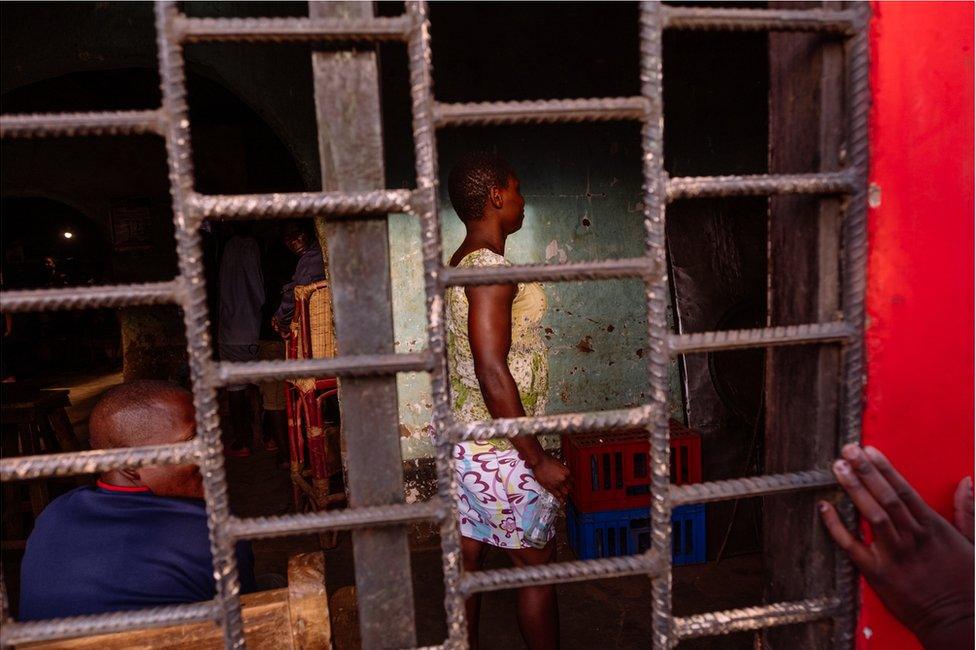
"I heard of MSF's services in November 2018, when their staff came to the bar to share information and screening about STIs and HIV," she says.
"This was the very first time I was given information on issues like HIV testing, sexual health. Before this I didn't know anything. I felt liberated, happy, because I was hearing things I never knew about.
"With these services, I feel more empowered than before and I'm able to negotiate protection with clients. I know how to put a condom on properly and we now have lubricant which prevents accidents."

Maria, sex worker, Dedza
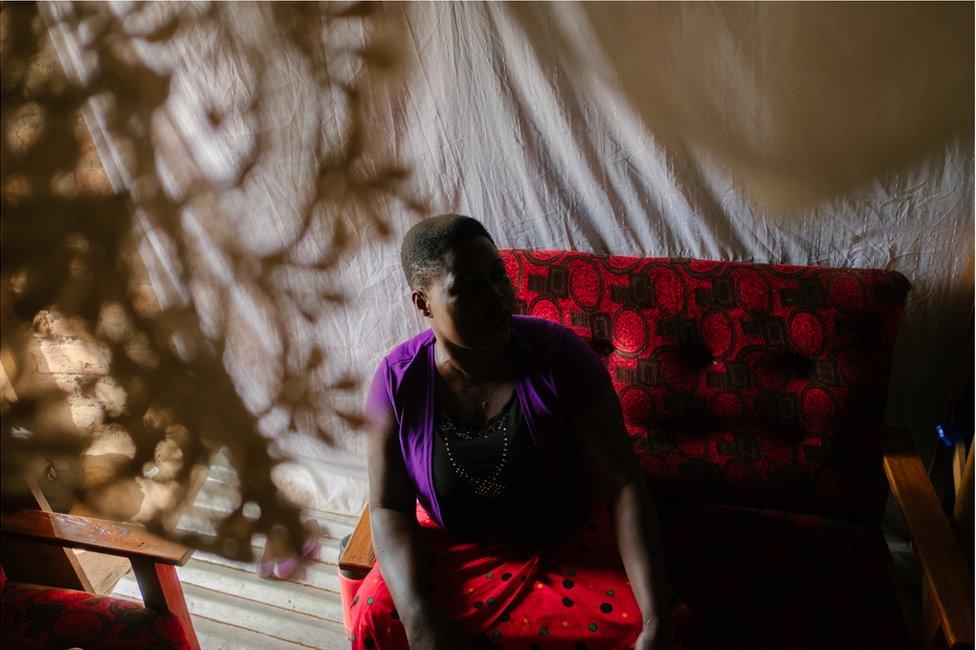
Maria, 36, was married for 11 years, selling farm produce with her husband. After suffering years of abuse, Maria was abandoned by her husband. She struggled to support herself and her young daughter, so turned to sex work.
"Sometimes clients will be violent or they won't pay," she says. "Two years ago, I had a client. We slept together but afterwards he didn't pay.
"During sex, he deliberately broke his condom. Things got violent and he knocked out my front tooth. And then afterwards he wouldn't pay."
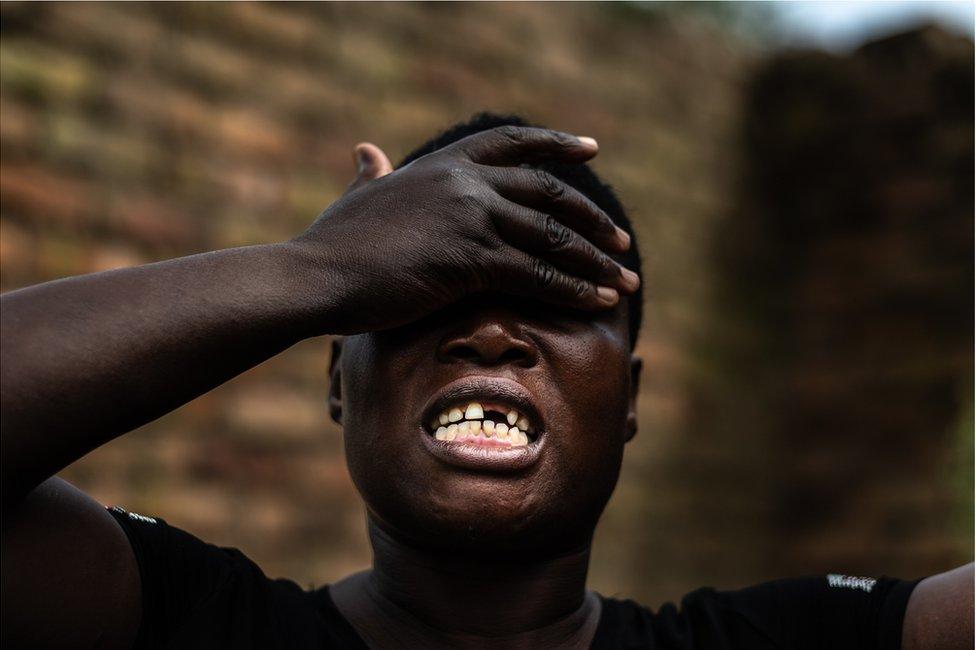
"Before MSF came here, we were being called whores and prostitutes. If we went to the police, they would send us away.
"Now we can get medication at the hospital without any problems."

Adeline, MSF community health worker, Bangula
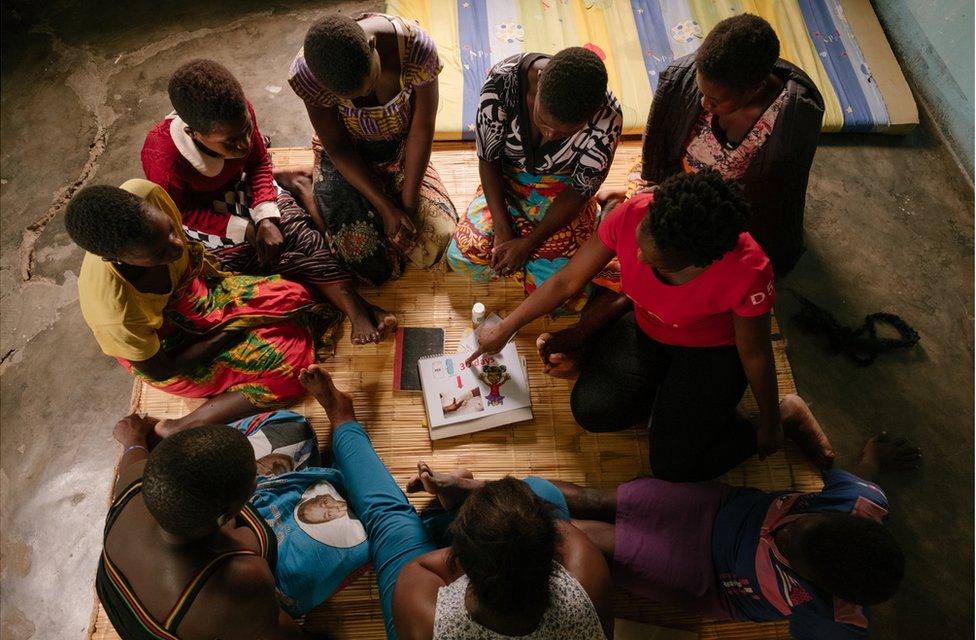
Adeline started as a community health worker in February 2015.
"As a community health worker, I've learned to take care of myself as a person and to live a healthy life," she says.
"Having knowledge means you can go to the hospital to get medical attention, you can do your job (as a sex worker) and help your family and community."
Adeline has been a sex worker since 2005. Previously she had been married with two children, but after her divorce she found she could not support her family.
She says: "A friend came to me and said, 'Why are you suffering? There's this alternative. You can make money with sex work'.
"I tried it and realised that I was making more than other ways to make money. So I decided to take this route."
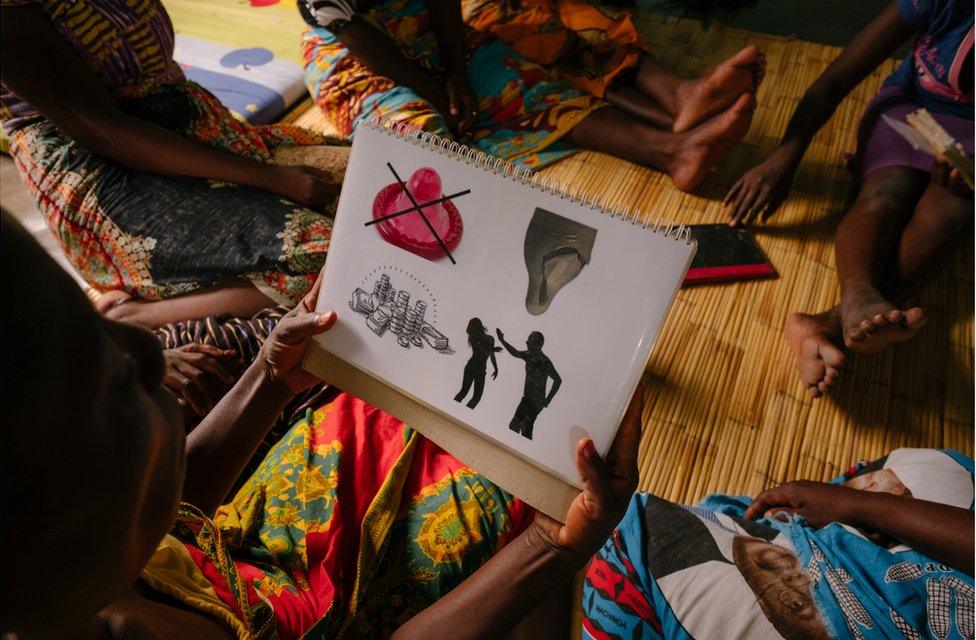
But sex work comes with risks, she adds.
"In 2007, I was working in Blantyre one night and a group of men beat me and my friend up. They left us naked with nothing.
"Another time, a client raped me during a session. I never went to the police. The guy was well known in the area and had raped other women and would come after those who reported it. It was better to just keep quiet, so I did nothing."

Chrissie Nasiyo, MSF nurse mentor, Nsanje
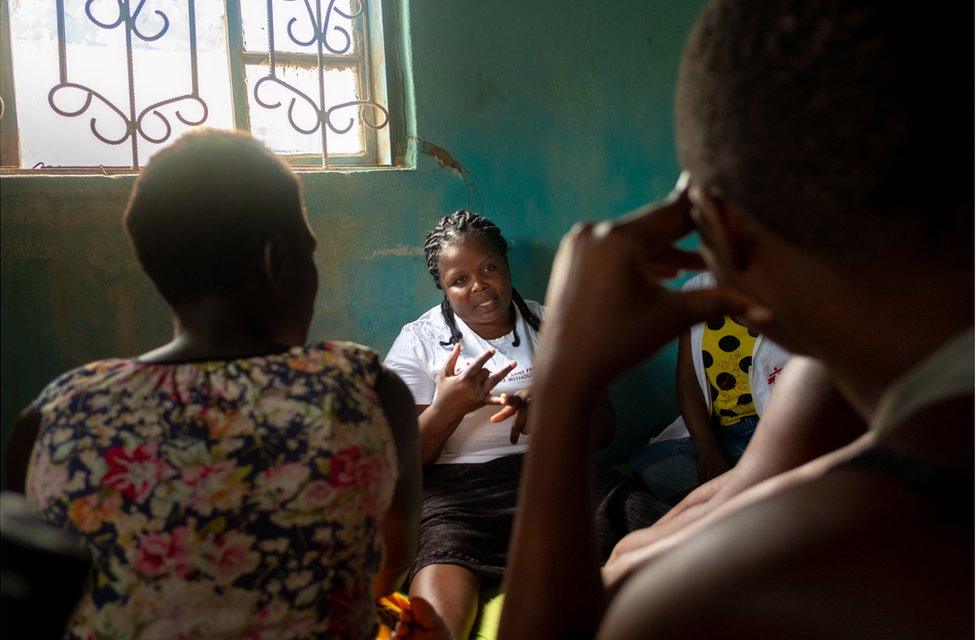
Chrissie has worked as part of the sex-worker project for two years.
"For someone to say, 'I'm a sex worker' can be difficult because of the culture, the stigma, the discrimination that goes with it.
"Of course, sex workers can feel differently about disclosing. Some don't care at all."
Chrissie explains the perceived difference between types of sex workers in Malawi.
"Most people mean 'commercial' sex workers when they talk about sex work, because it's a job for her. She wakes up, gets dressed and goes to find a customer.
"But for the 'transactional' sex worker, she might be working-class, going to her normal job, and having multiple partners in exchange for goods, but she won't accept that she's a sex worker.
"Defining it for these women can help."
Chrissie offers the same services for commercial and transactional sex workers. Participants are offered condoms, HIV and STI testing, family planning, and antiretroviral therapy (ART) if they are HIV-positive. Chrissie says the majority of the sex workers she works with are.
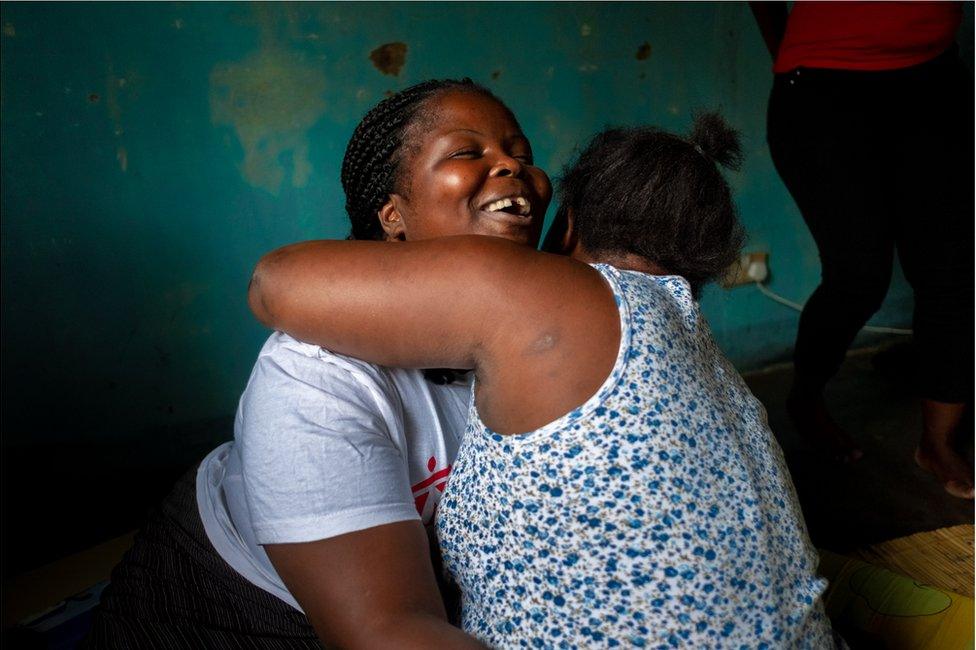
"I love working with the girls because they have stories to tell.
"Maybe you can judge them from the outside but if you hear their story, you might feel whatever they are doing is not wrong, they are doing it for a purpose."

Ketisha, sex worker, Mwanza
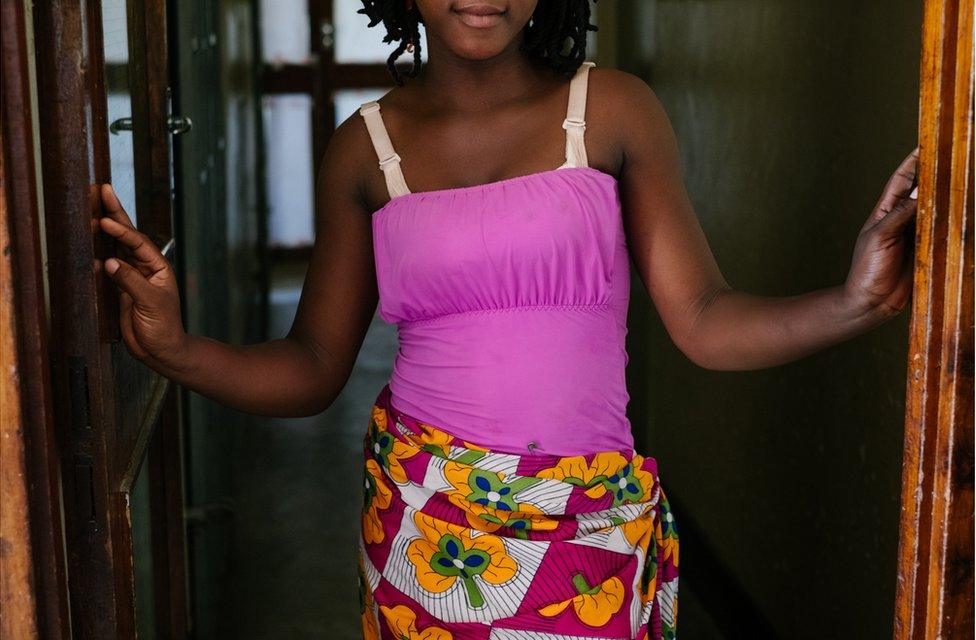
When Ketisha, 16, was at school she was in a relationship that resulted in her getting pregnant. The father didn't support her.
She stayed with her sister for a while but the arrangement didn't last. Ketisha tried to avoid becoming a sex worker.
"For me to find myself being a sex worker doesn't mean I never tried alternative ways to support myself financially," she says.
"I tried to sell mandasi (fried bread) but things didn't work out. After that I tried selling green maize but in the end, it was all struggles."
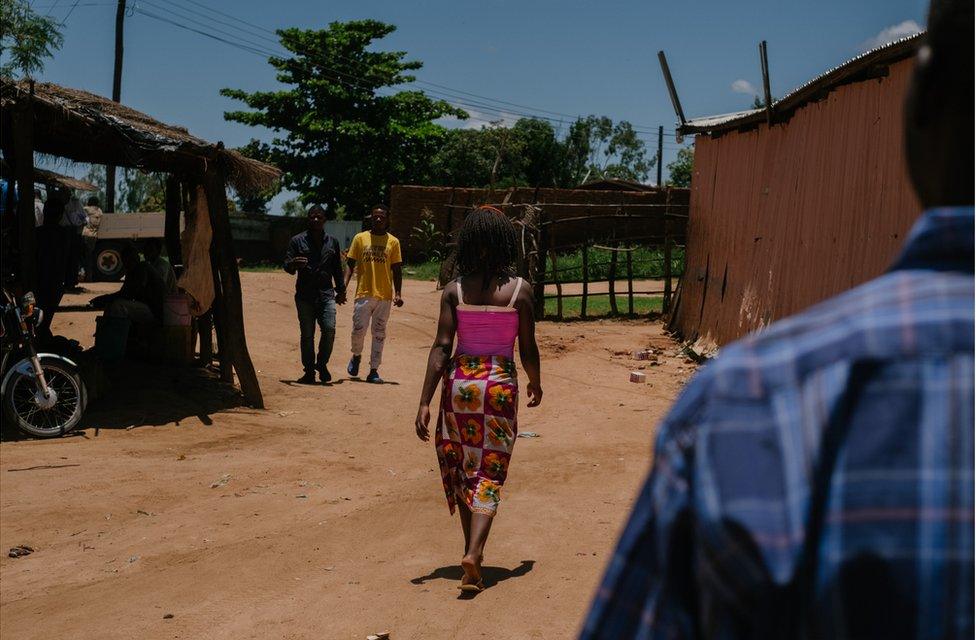
"Being a teenager, plying my trade as sex worker, is not easy. I get asked why at my age I am at the bottle store instead of being at school. My parents don't know that I am sex worker.
"When I look around, a lot of teen sex workers are facing a lot of challenges. They are being forced to sleep with older men without the use of any protection and without getting paid. If they protest, they are physically assaulted."

Jennifer, sex worker, Mwanza
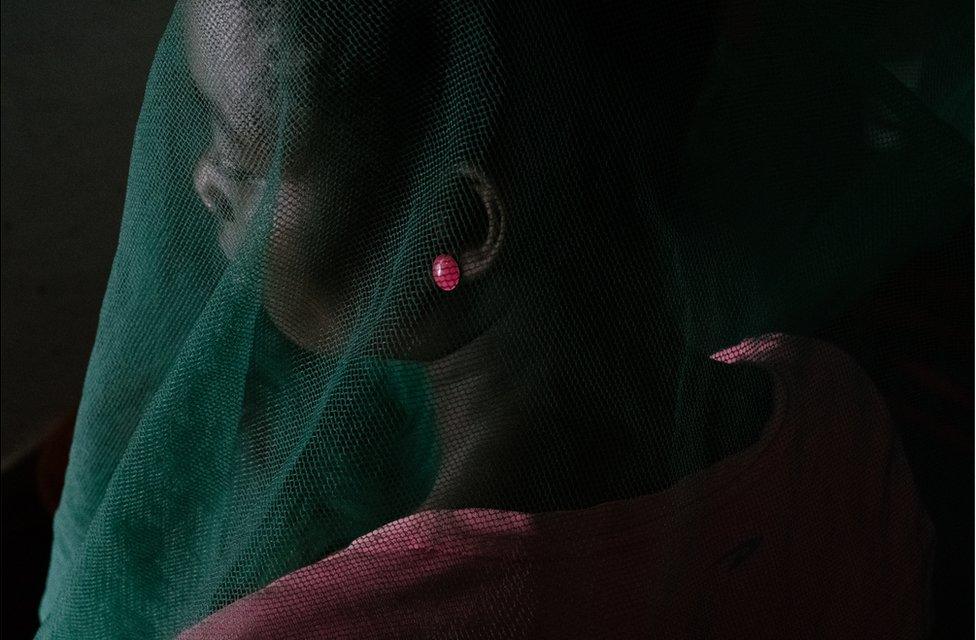
Jennifer, 26, is a single mother with two children. Her husband was a professional thief. When she asked him to leave his life of crime, he refused. They separated and divorced.
In 2008, Jennifer felt that the only way to support her children was to go into sex work
"When my relatives heard that I have started doing sex work, I was chased away and told that I should never go back home," she says.
"But blood is thicker than water, and later on when I visited them I found that they welcomed me. My two kids now stay with my mother."
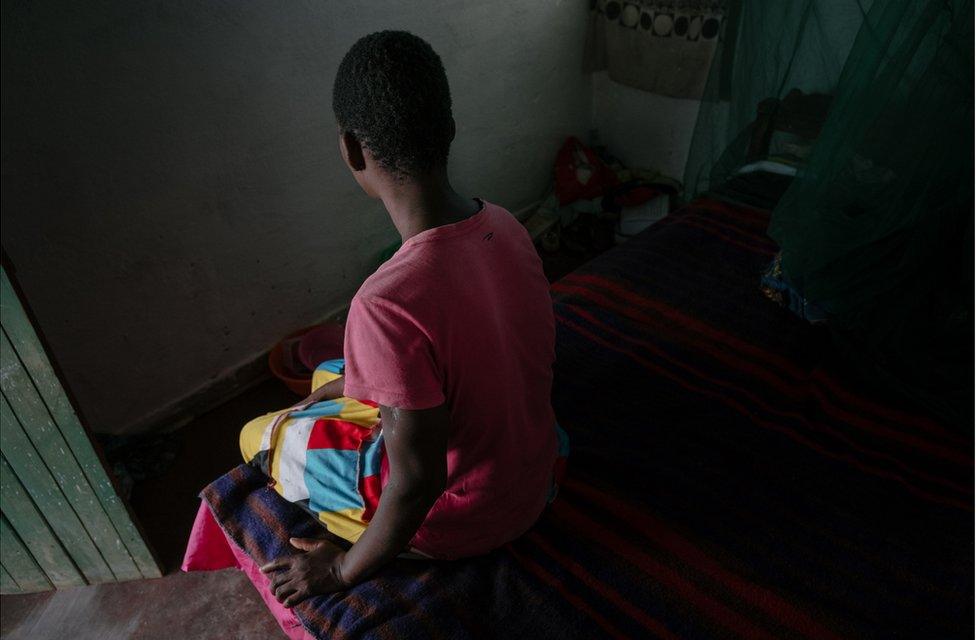
"As a sex worker there are a number of challenges. [Once a] client paid in advance and came to my room. He asked me to go and buy chips, so I did but when I came back I found that he had stolen my money and clothes.
"I intend to stop this [sex work] business. It's really tough... If I continue, I feel I will die before my time."
Interviews by Kate Ribet, photos by Isabel Corthier,., external